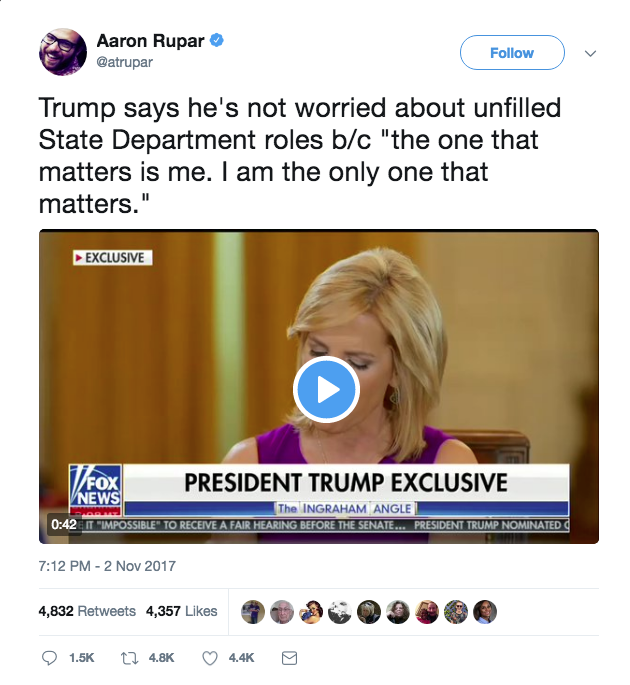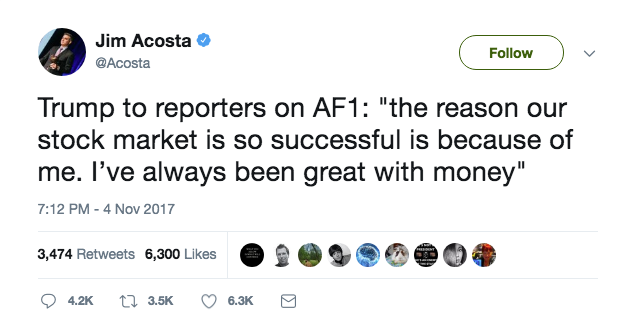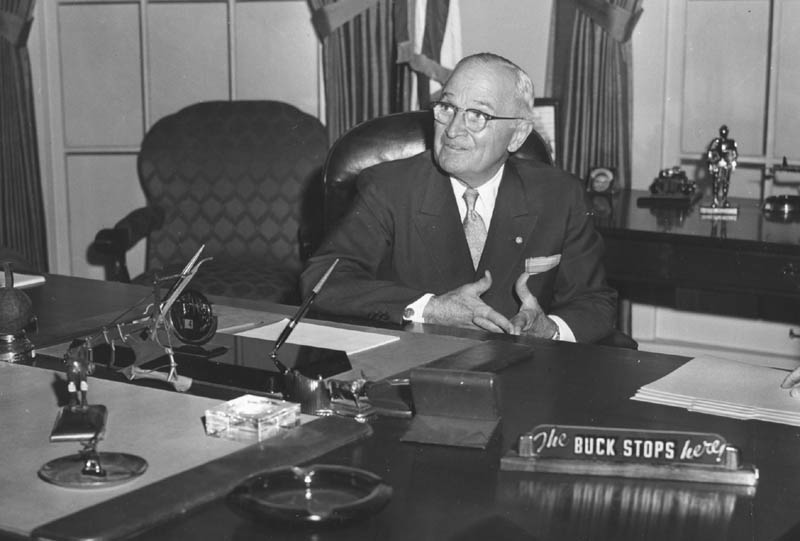July 14, 2007 by lonbud
Songs Of Freedom
Let it not be said George W. Bush has led an inconsequential life.
After a thoroughly unremarkable childhood and youth as the n’er-do-well drunkard scion of one of the East Coast elite’s most powerful and well-connected families, in the fourth decade of a life most notable for the dissolution of both his morals and his finances, Mr. Bush embraced Jesus Christ as his personal Lord and Saviour.
And so began an unlikely journey that would lead him to the governorship of one of the largest states in the Union, and eventually, to the Presidency of the United States of America.
From there, in the time it takes a human child to learn to swear, Mr. Bush became a lightning rod for questions of law, morality, and reason that – prior to his installation as President – had seemed well-settled for hundreds of years.
His very existence demands a degree of inquiry into the nature of will, autonomy, and independence that few have inspired in any age.
It’s impossible to know where to launch an examination into the many ways Mr. Bush’s life has stood centuries of logic on its head, into how a man who had exhibited mediocrity and failure at every stage of his development — a man of pedestrian intellect but fortunate birth — might cause the entire breadth of humanity to consider the ways people relate to one another, and how States engage in the courses of global diplomacy.
But we must accept Mr. Bush’s challenge to our understanding of all that is Good and all that is Evil. And we must consider his claim to the mantle of Goodness.
Aside from his protestations toward acting in its service, what do we know of Mr. Bush’s works for Good?
Is there any evidence of his having brought together disparate views? Has he championed any positive or productive shift in our expectations of what it means to govern ourselves, personally or politically? Has any policy or initiative of his led to the betterment of the conditions of Life for anyone beyond his immediate circle of family, friends, and benefactors?
These are the questions a generation of pundits and historians will no doubt ruminate on, and likely will provide incentive for the waste of many words and innumerable reams of paper in the decades to come.
Now, in the waning months of what a clear majority of American citizens regards as a failed presidency, it is not difficult to discern the tumult, chaos, and divisiveness he will leave behind.
Above all else, he will be identified with having committed the United States to war in Iraq.
To some, his greatest achievement will be seen as having liberated the citizens of that ill-fated land from the oppressive despotism of Saddam Hussein. Consider, however, the costs of “liberation,” and reflect upon the nature of the freedom bestowed upon the Iraqi populace by the “goodness” of Mr. Bush:
Nearly $500 billion cash – and counting – from the U.S. Treasury. This amount is considerably in excess of even the wildest numbers that were thrown around during the run-up to the war in early 2003.
The lives of nearly four thousand American soldiers have been sacrificed, those of some fifteen thousand or more ruined forever, to buy the Iraqis’ freedom.
It is well known official U.S. government policy from the start has been to leave the dead and wounded among the Iraqis uncounted, however it is not difficult to imagine the numbers exceeding those of the U.S. by many orders of magnitude.
And these are just the paid-in costs in blood and treasure. What of the ongoing costs? What has Mr. Bush’s defining embrace of the “duty” to champion Good over Evil bestowed upon Iraq and its people?
Global consensus indicates whatever freedom the Iraqi people may one day fashion for themselves in the wake of Mr. Bush’s decision to force it upon them, a humanitarian disaster on a par with the worst in the annals of modern history will precede it.
And so the crowning achievement of Mr. Bush’s public life will be to have wrested a foreign land and its millions of innocent citizens from the grip of terror and oppression levied by a lone pathological dictator, only to leave it in the throes of terror and oppression of a different sort.
Whereas once the Iraqi people trembled before the capricious megalomania of Saddam Hussein, Mr. Bush has bestowed upon them the freedom to tremble at the thought of going to the post office or to the market for a crust of bread.
A free and independent Iraqi nation is but the starkest, most obvious disaster for which Mr. Bush will bear responsibility. He and his pursuit of Good vs. Evil must also be credited with the dismantling of America’s prestige on the world stage.
While there can no longer be any credible doubt as to the fact of shrinkage in our nation’s global esteem, those on both sides of the political divide here at home may still debate its provenance.
Whether one is inclined to accept the generally conservative notion that we have always been hated for our freedoms and our prosperity, that we’re damned if we do and damned if we don’t when it comes to our foreign policy, or whether one takes the position espoused by a certain leftist mindset that we’re hated because we’ve always been a hegemonic evildoer in our global affairs, evidence suggests neither such view is accurate. In point of actual fact, world opinion of the United States has declined markedly during — and largely as a direct consequence of — the Bush administration.
Behold, therefore, the greatest good works of our 43rd President: the instigation of a bloody civil war in a land to which he laid waste without provocation, and the tarnishing of the credibility and reputation of a nation to which many the world over once looked for inspiration and hope for a better tomorrow.
As the man himself might say, “a heckuva job.”
But Mr. Bush will leave Washington with much more than the chaos and devastation of Iraq and the ruination of our international esteem in his wake.
He is also responsible for virtual paralysis among the three branches of a government once thought to be the exemplar of man’s imperfect desire to order his affairs justly and equitably.
Never in our history has an administration sought to perform its functions in such secrecy.
Never has one so brazenly flouted established law nor so openly disavowed its intention to comply with the legislation it purported to enact.
Never in our history has an administration reveled so unapologetically in its contempt for congress and the courts, for science, logic, fairness, and the long-term security and prosperity of its people.
The life of George W. Bush stands for the proposition that, no matter how unprepared for the challenges of adulthood and citizenry, without regard to the disdain one might show for history, learning, and wisdom, despite one’s rejection of his very connectedness to the universe – one can still have an effect in the world.
Let Freedom Ring.



Philippe - July 15, 2007 @ 2:49 pm
Mr. Bush ?
Who is that person ?
Bastille day was warm and full of firewroks by the Vezere river in Montignac……the best thing about living in France : Mr. Bush ?
Who is that person ?
A+
Philippe & Meredith + Cléo & Lucien
lonbud - July 16, 2007 @ 10:11 am
Update:
For more on the unprecedented nature of the Bush administration’s penchant for secrecy, see the always excellent Glenn Greenwald in Salon.
And for a through review of the administration’s anti-historical view of the world, don’t miss the late, great David Halberstam’s piece in the August issue of Vanity Fair.
Tam O’Tellico - July 18, 2007 @ 7:50 pm
A Good Tyrant
There is something to be said for tyranny. It is said that in ancient Rome, a Roman citizen could travel in relative safety anywhere in the empire. It is said that Mussolini made the trains run on time. Hitler was responsible for the Volkswagen. The Communists vastly improved literacy and health-care in the Soviet Union. The same can be said for Fidel Castro’s Cuba. Even Saddam Hussein kept Iraq relatively peaceful – at least compared to the tragic state of that country now that we have ‘liberated’ it from his dictatorship.
All that said, no one in his right mind would argue for a dictator. The point is there ought to be some compensation for the horrors of tyranny.
So what benefits have we derived from the reign of the man who would be king? None.
Instead, we have witnessed an abrupt decline in the efficiency and quality of every aspect of government – FEMA reduced to a dumping ground for party hacks, DoJ become a home for lower-tier loyalist lawyers, DoE turned into a retreat for oil execs, the FDA a haven for evangelizing quacks, the CIA a nest of rubber-stamp toadies, and our vaunted military reduced to a shadow of its former strength.
To make matters worse, we have paid dearly for the privilege. No one can reasonably argue that this administration has increased liberty for citizens – if you’ve taken a flight lately, I’m sure you’ll agree. Oh – and if you’ve applied for a passport lately, you know what a miserable joke that has become. Yet despite such clampdowns, our borders remain glaringly porous.
While the few remaining supporters of this administration argue that at least we haven’t been attacked here since 9-11, no reasonable person would argue that we are safer than we were before this President took office. And that is not likely to improve once he leaves, since his policies have provided ammunition that surely will be used to arm a whole new generation of terrorists.
And we have paid dearly from our treasury as well. “Compassionate Conservatism”, or more accurately “Puerile Paternalism” has led to the greatest raid on our national wealth in history. Our national debt stands at $9,000,000,000,000 – that’s nine trillion dollars, a fifty-year high as a percentage of GDP. In fact, the last time we were in such a hole, we had just defeated the worst dictator in modern history. Most would agree that winning that war was money well-spent. Most would agree that losing the present war is not – unless you’re a past or present CEO of Halliburton.
Apparently, all such criticism falls on deaf ears in the White House where the President and Vice-President believe they are above the law and not answerable to anyone, where low-life lackeys like Alberto Gonzales are retained and perjuring political operatives like Lewis Libby are pardoned. Thus it has ever been with tyrants.
But if you’re going to take away our freedom and bankrupt the country, don’t ignore us, at least give us something in return. If you’re going to be a tyrant, at least be a good one.
©2007 Tom Cordle
Tam O’Tellico - July 18, 2007 @ 7:56 pm
BTW, Lon, your piece was exceedingly well-written. Kudos!
Tam
lonbud - July 19, 2007 @ 7:44 pm
Tam, as always, thanks for stopping by.
You think maybe if I start turning my attention to Rudy G we can attract the Michael Herdegens of the blogosphere to re-engage?
I never thought I say this, but I kind of miss the bad old days when the neocons thought they had us by the short n’ curlies…
Tam O’Tellico - July 20, 2007 @ 2:45 pm
Maybe Michael’s been “Free-Market” downsized and is trying to figure out how to get by on $10,000 a year.
I would hope we could begin to engage the debate about who is best to clean up another one of w’s bankruptcies.
lonbud - July 20, 2007 @ 6:20 pm
Indeed, you raise a fine point, Tam. What we face today is completely in keeping with w’s lifelong history of completely destroying everything he’s ever touched.
The man has not a single organizational or entrepreneurial success to his credit over a lifetime of advantage and favoritism and it should come as no surprise to anyone now that he will leave Washington with a massive, steaming, blood-soaked pile of feces on someone else’s plate.
heckuva job, pom-pon boy.
Tam O’Tellico - July 20, 2007 @ 6:57 pm
I have a friend – a retired banker – who admits to voting for w twice. I once asked him what job he would hire bush for based on his resume. His reply? None. So I asked him how the hell he could possibly vote twice for a man he wouldn’t hire at his bank in any capacity. Same answer – none.
But I say again, this problem is bigger than bush. It will only get worse if people continue to believe that a complicated, modern society can survive and prosper if every aspect of that society operates on the notion of lassiez-faire (sp) jungle economics.
And if it doesn’t work between people, it doesn’t work between peoples.
lonbud - July 21, 2007 @ 8:18 am
The notion of “Free Market” economics is one of the great shibboleths of our time. It has become a sort of short-hand for the belief that the power of government is the exclusive province of those with the money to fund it.
True free marketeers, who believe there’s no place for government at all, are a fringe element fewer in number even than those who cling to Marxism.
There’s a great article in the August Harper’s that speaks to the way our humanity’s free market religion is proving indispensible to our very undoing.
George Powell - July 23, 2007 @ 8:41 am
This commentary and the preceeding one are right on point and raise some disturbing questions. Would that Nancy Pelosi consider such arguments when she says impeachment is “off the table.” In the interim, no Bush-sponsored appointee to ANY office should be approved by Congress, nor any legislative initiative be considered. “Making nice” with this ultra-corrupt and grotesquely evil administration is what should not be on the table.
lonbud - July 23, 2007 @ 10:38 am
You are one of a growing number of Americans who feels the same way, George. I think it may be a case of too little too late as far as impeachment is concerned, but Senator Feingold announced on “Meet the Press” yesterday his intention to offer a new censure resolution against the administration.
Today, Rep. Conyers announced the House Judiciary Committee will meet Wednesday to vote on issuing contempt citations for former White House counsel Harriet Miers and White House chief of staff Joshua Bolten over their refusal to testify and provide documents related to the firings of U.S. attorneys.
What continues to dumfound me is why it has taken so long for any of this to gain traction, but I guess it’s better late than never, eh?
harshmoon - July 23, 2007 @ 7:43 pm
With Russ Feingold’s move to censure the president, the Dems are approaching this issue the same way as Iraq. They claim the American people want impeachment just like they claim the American people want to pull our troops out of Iraq – but they don’t have the guts to actually vote for it.
lonbud - July 24, 2007 @ 3:46 pm
You are correct, sir. As I posted on the “Gut Check” thread, it’s fairly clear that what we have in this country today is either one political party with two right wings, or two political parties with one right wing. In either event, the eagle has been grounded.